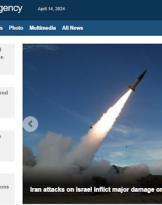European Army, not European Army ... the debate of the last hours has focused on definitions and nuances. What I ask you, vice versa, Minister, is the direction ... Yes, the direction, the point of reference for steering the rudder.
The point, let me, is not to define the level of admixture of the military instrument with our European partners, nor to understand its function and methods of use.
In the light of the cold shower received by French President Hollande, what is more difficult to understand is why Italy is often at the forefront of initiatives of which poor mortals escape direct utility.
Sovereignty, as you teach me, is divided into operative tools that show its actual consistency. As children of Europe we have delegated the economic one, leaving the monetary and budgetary politics between Brussels and Frankfurt; many of our choices in foreign policy are not such by virtue of secular bonds and alliances; much of our daily life is decided away from us, in spite of that modernity that wants the citizen close to the institutions. In a similar context, is a military force shared with other countries really what we need? In more direct terms, to which concrete interest does it correspond?
A rhetorical fuor, one wonders where this desire for concertation and this impetus for sharing without ifs and buts are born. The reasoning may seem petty, the victim of a dated provincialism, but taking note of the behavior of others, it seems more than legitimate.
The Atlantic France of our time, albeit far from the degaullia prima, allows us to freeze the initiative by denying the existence of a European army project on the horizon. It is France itself that continues to protect its interests in the world regardless of the European family and the concertation. The savings list of military missions conducted independently by Paris in recent years ...
The same Germany, that of the European family represents the mother with the purse and the wallet, niche with style, taken between his electoral doubts and the necessary reflections on what the Union is today.
Only Italy, among the founding countries of the continental project, continues to agitate euphorically giving generous proof of its misunderstanding and sometimes incomprehensible availability. We are more and more like a guy who boasts of taking part in a party that nobody actually invited him to. A party, which probably will not even be there.
The pleasant reasons for a common horizon and bla bla bla ... we all know you Minister. Our generation has grown on bread and in Europe. In recent times more to Europe than to bread in reality ...
If the considerations are part of ideals of principle, nothing to complain. Bad provincialism is always less popular than good politically correct. If instead we return to practical reason, before thinking of our military instrument as a lever of shared interests, it would perhaps be appropriate to isolate and recognize ours well. Perhaps it would be appropriate to identify those geopolitical coordinates that make a foreign and defense policy coherent and credible.
Italy is surrounded by provincialisms (those yes) that with walls and "first of us ..." indicate a lack of dedication to the common home.
Should the role of romantic precursors always have to be with us? Before thinking of a European army it would perhaps be advisable to freshen up its mission and revive the link between military and motherland, provided it still makes sense. In years of international missions whose goals are not always crystalline for ordinary mortals (the same ones above ...), we risked getting lost a bit.
I remind you that even in uniform we are an excellence. We do not have the task of watering it down. Before a future European army, the future of Europe should be better understood. Maybe giving an eye to that of Italy. You never know ...
(Photo: Ministry of Defense)












